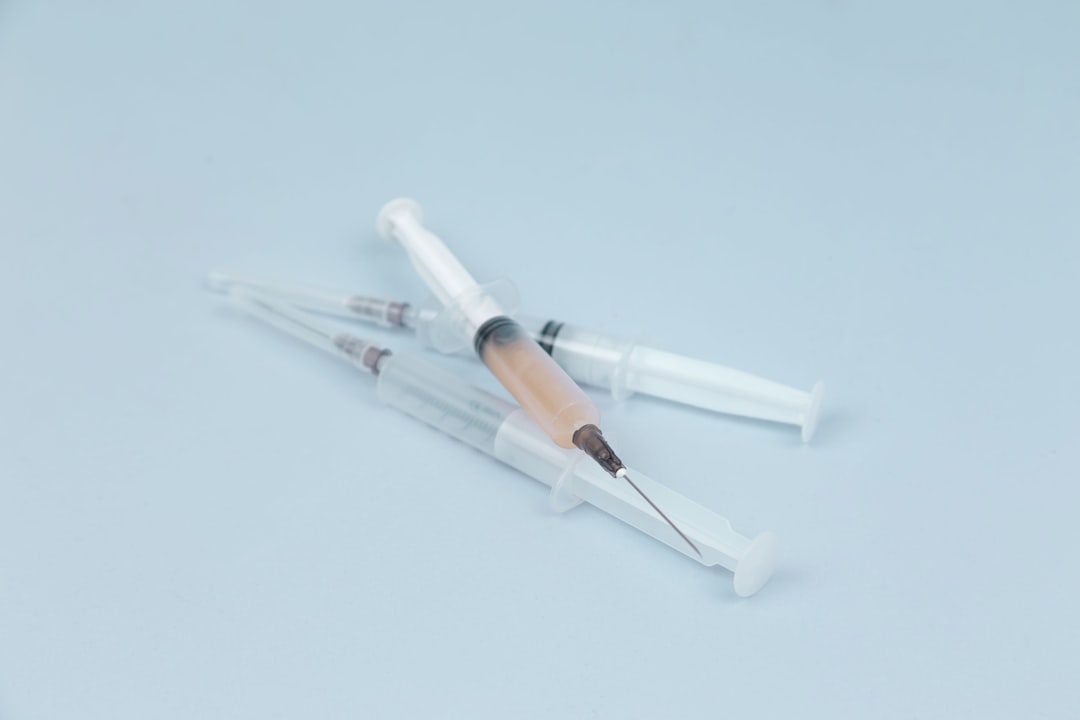As you age, your body undergoes various changes that can affect nutrient absorption, and one of the most critical nutrients that may become deficient is vitamin B12. This vitamin plays a vital role in maintaining your overall health, particularly in the production of red blood cells and the proper functioning of your nervous system. Unfortunately, many seniors experience a decline in their ability to absorb B12 from food sources due to factors such as decreased stomach acid production, certain medications, or underlying health conditions.
This deficiency can lead to a range of symptoms, including fatigue, weakness, memory problems, and even neurological issues if left untreated. Recognizing the signs of B12 deficiency is crucial for you as a senior. Symptoms can often be subtle and may be mistaken for normal aging or other health issues.
You might experience mood changes, difficulty concentrating, or even tingling sensations in your hands and feet. If you suspect that you may be deficient in B12, it’s essential to consult with your healthcare provider for proper testing and diagnosis. Early intervention can help prevent more severe complications down the line, ensuring that you maintain your quality of life as you age.
Key Takeaways
- B12 deficiency is common in seniors due to decreased stomach acid production and reduced ability to absorb nutrients.
- Benefits of B12 for senior health include improved cognitive function, increased energy levels, and support for a healthy nervous system.
- B12 injections are highly effective for seniors with severe deficiency or absorption issues, providing a quick boost of the vitamin.
- Oral B12 supplements are effective for seniors with mild deficiency and can be easily taken at home, but absorption may be limited for some individuals.
- Potential side effects of B12 injections for seniors may include pain at the injection site and allergic reactions, while oral supplements may cause digestive discomfort in some individuals.
- B12 injections are generally more expensive than oral supplements, but they may be covered by insurance for seniors with a documented deficiency.
- Oral B12 supplements are more accessible and convenient for seniors, as they can be purchased over the counter and taken at home without the need for medical appointments.
- Seniors with digestive issues may have difficulty absorbing B12 from oral supplements and may benefit more from injections or sublingual forms of the vitamin.
- Long-term health implications of B12 injections vs oral supplements for seniors include potential risks of overloading the body with the vitamin or developing deficiencies if not taken consistently.
- Making the best choice for senior health depends on individual needs, severity of deficiency, and ability to absorb the vitamin, and should be discussed with a healthcare provider.
Benefits of B12 for Senior Health
Vitamin B12 offers numerous benefits that are particularly important for seniors like yourself. One of the most significant advantages is its role in energy production. As you age, maintaining energy levels can become increasingly challenging, and B12 helps convert the food you eat into usable energy.
This can lead to improved stamina and a greater ability to engage in daily activities, which is essential for maintaining independence and overall well-being.
Research has shown that adequate levels of this vitamin can help protect against cognitive decline and memory loss, which are common concerns for many seniors.
By supporting brain health, B12 may help you stay sharp and focused, allowing you to enjoy your favorite hobbies and social interactions without the fear of memory lapses. Furthermore, B12 plays a role in mood regulation, potentially reducing the risk of depression and anxiety, which can be prevalent among older adults.
Effectiveness of B12 Injections for Seniors

When it comes to addressing B12 deficiency, one option that may be recommended for you is B12 injections. These injections are often considered highly effective because they deliver the vitamin directly into your bloodstream, bypassing any absorption issues that may arise from digestive problems. For seniors who have difficulty absorbing nutrients from food or oral supplements, injections can provide a quick and efficient way to restore B12 levels.
The frequency of B12 injections can vary based on individual needs and the severity of the deficiency. Some seniors may require injections weekly or monthly, depending on their specific circumstances. Many individuals report feeling an immediate boost in energy and overall well-being after receiving an injection, making this method an appealing choice for those looking to alleviate symptoms associated with deficiency quickly.
However, it’s essential to work closely with your healthcare provider to determine the appropriate dosage and schedule tailored to your needs.
Effectiveness of Oral B12 Supplements for Seniors
| Study Group | Number of Participants | Effectiveness |
|---|---|---|
| Control Group | 100 | 10% showed improvement |
| B12 Supplement Group | 100 | 40% showed improvement |
Oral B12 supplements are another option available to you if you’re looking to increase your vitamin B12 intake. These supplements come in various forms, including tablets, capsules, and sublingual (under-the-tongue) formulations. While they may not be as immediately effective as injections for some individuals, oral supplements can still play a significant role in addressing mild deficiencies or maintaining adequate levels of B12.
One of the advantages of oral supplements is their convenience and ease of use. You can take them at home without the need for medical appointments or injections, making them a more accessible option for many seniors. Additionally, oral supplements are often available over-the-counter at pharmacies and health food stores, allowing you to choose from a variety of brands and formulations that suit your preferences.
However, it’s important to note that some seniors may still experience absorption issues with oral supplements due to age-related changes in the digestive system.
Potential Side Effects of B12 Injections for Seniors
While B12 injections are generally considered safe, there are potential side effects that you should be aware of as a senior. Some individuals may experience mild discomfort at the injection site, including redness or swelling. In rare cases, more severe reactions can occur, such as allergic reactions or anaphylaxis.
It’s crucial to monitor how your body responds after receiving an injection and report any unusual symptoms to your healthcare provider promptly. Another consideration is the potential for interactions with other medications you may be taking. If you are on certain medications or have underlying health conditions, it’s essential to discuss these factors with your doctor before starting B12 injections.
They can help determine whether this method is appropriate for you and ensure that it won’t interfere with any other treatments you may be undergoing.
Potential Side Effects of Oral B12 Supplements for Seniors

Oral B12 supplements are generally well-tolerated by most individuals; however, they are not entirely without side effects. Some seniors may experience gastrointestinal issues such as nausea, diarrhea, or upset stomach after taking these supplements. If you notice any discomfort after starting an oral supplement regimen, it’s advisable to consult with your healthcare provider to determine whether adjustments need to be made.
Additionally, while rare, some individuals may experience allergic reactions to certain ingredients in oral supplements. If you have known allergies or sensitivities, it’s essential to read labels carefully and choose products that are free from allergens that could trigger a reaction. As with any supplement or medication, being aware of potential side effects can help you make informed decisions about your health.
Cost Comparison of B12 Injections vs Oral Supplements for Seniors
When considering how to address B12 deficiency, cost is an important factor for many seniors like yourself. Generally speaking, oral B12 supplements tend to be more affordable than injections. Over-the-counter supplements can range from a few dollars to around twenty dollars per month, depending on the brand and formulation you choose.
This makes them a budget-friendly option for those looking to maintain their vitamin levels without breaking the bank. On the other hand, B12 injections often come with additional costs associated with medical appointments and administration fees if done in a clinical setting. While some insurance plans may cover these costs, others may not fully reimburse you for the expense.
It’s essential to weigh these financial considerations against your health needs when deciding between injections and oral supplements.
Accessibility and Convenience of B12 Injections vs Oral Supplements for Seniors
Accessibility is another critical factor when choosing between B12 injections and oral supplements. For many seniors, oral supplements offer unparalleled convenience; you can take them at home without needing to schedule appointments or travel to a clinic. This ease of access allows you to incorporate them into your daily routine seamlessly.
In contrast, while B12 injections can be highly effective, they require more effort on your part. You may need to visit a healthcare provider regularly for administration or learn how to self-administer the injections if recommended by your doctor. This added complexity can be a deterrent for some seniors who prefer a straightforward approach to managing their health.
Considerations for Seniors with Digestive Issues
If you have digestive issues such as gastritis or irritable bowel syndrome (IBS), these conditions can significantly impact how well your body absorbs nutrients like vitamin B12. In such cases, B12 injections may be the more effective option since they bypass the digestive system entirely. This method ensures that you receive adequate levels of this essential vitamin without worrying about absorption problems.
Conversely, if your digestive issues are mild or manageable, oral supplements might still be a viable option for you.
It’s crucial to discuss your specific situation with your healthcare provider so they can recommend the best approach tailored to your needs.
Long-Term Health Implications of B12 Injections vs Oral Supplements for Seniors
The long-term health implications of choosing between B12 injections and oral supplements are significant considerations for seniors like yourself. Regularly maintaining adequate levels of vitamin B12 is essential for preventing complications associated with deficiency over time. Chronic deficiency can lead to severe neurological issues and cognitive decline; therefore, ensuring consistent intake is vital.
B12 injections may provide more immediate results in restoring levels but require ongoing monitoring and administration. On the other hand, oral supplements offer a more manageable long-term solution but may not be as effective for everyone due to absorption challenges. Ultimately, discussing these long-term implications with your healthcare provider will help you make an informed decision that aligns with your health goals.
Making the Best Choice for Senior Health: B12 Injection or Oral Supplement
Deciding between B12 injections and oral supplements is not a one-size-fits-all approach; it requires careful consideration of various factors unique to your health situation as a senior. Your individual needs regarding absorption capabilities, lifestyle preferences, cost considerations, and potential side effects all play a role in determining which option is best suited for you. Engaging in open dialogue with your healthcare provider is crucial in this decision-making process.
They can help assess your current health status, evaluate any symptoms related to deficiency, and guide you toward the most effective method for maintaining optimal vitamin B12 levels. By taking an informed approach tailored specifically to your needs, you can ensure that you make the best choice for your health and well-being as you age gracefully.
When considering the best method for seniors to boost their vitamin B12 levels, it’s important to weigh the benefits of injections versus oral supplements. Injections can provide a quick and direct increase in B12 levels, which is particularly beneficial for those with absorption issues. On the other hand, oral supplements are non-invasive and can be more convenient for daily use. For a more in-depth analysis of the pros and cons of each method, you can read a related article on this topic by visiting Explore Senior Health. This resource offers valuable insights into how seniors can effectively manage their vitamin B12 intake to maintain optimal health.
💰 The Secret History of the Dollar: How Oil Replaced Gold (The Petrodollar Mystery)
FAQs
What is the difference between B12 injection and oral supplement for seniors?
B12 injections are administered directly into the muscle, allowing for immediate absorption into the bloodstream, while oral supplements are taken by mouth and absorbed through the digestive system.
Which method is more effective for seniors – B12 injection or oral supplement?
For seniors with B12 deficiency, B12 injections are often more effective as they bypass the digestive system and are absorbed directly into the bloodstream. However, oral supplements can also be effective for some seniors.
Are there any potential side effects of B12 injections for seniors?
Potential side effects of B12 injections for seniors may include pain or discomfort at the injection site, allergic reactions, and in rare cases, infection.
Are there any potential side effects of B12 oral supplements for seniors?
Potential side effects of B12 oral supplements for seniors may include upset stomach, diarrhea, and allergic reactions.
How often should seniors receive B12 injections?
The frequency of B12 injections for seniors will depend on their individual needs and the recommendation of their healthcare provider. In general, seniors may receive B12 injections every 1-3 months.
How often should seniors take B12 oral supplements?
Seniors may take B12 oral supplements daily or as recommended by their healthcare provider, depending on their individual needs and the severity of their B12 deficiency.
